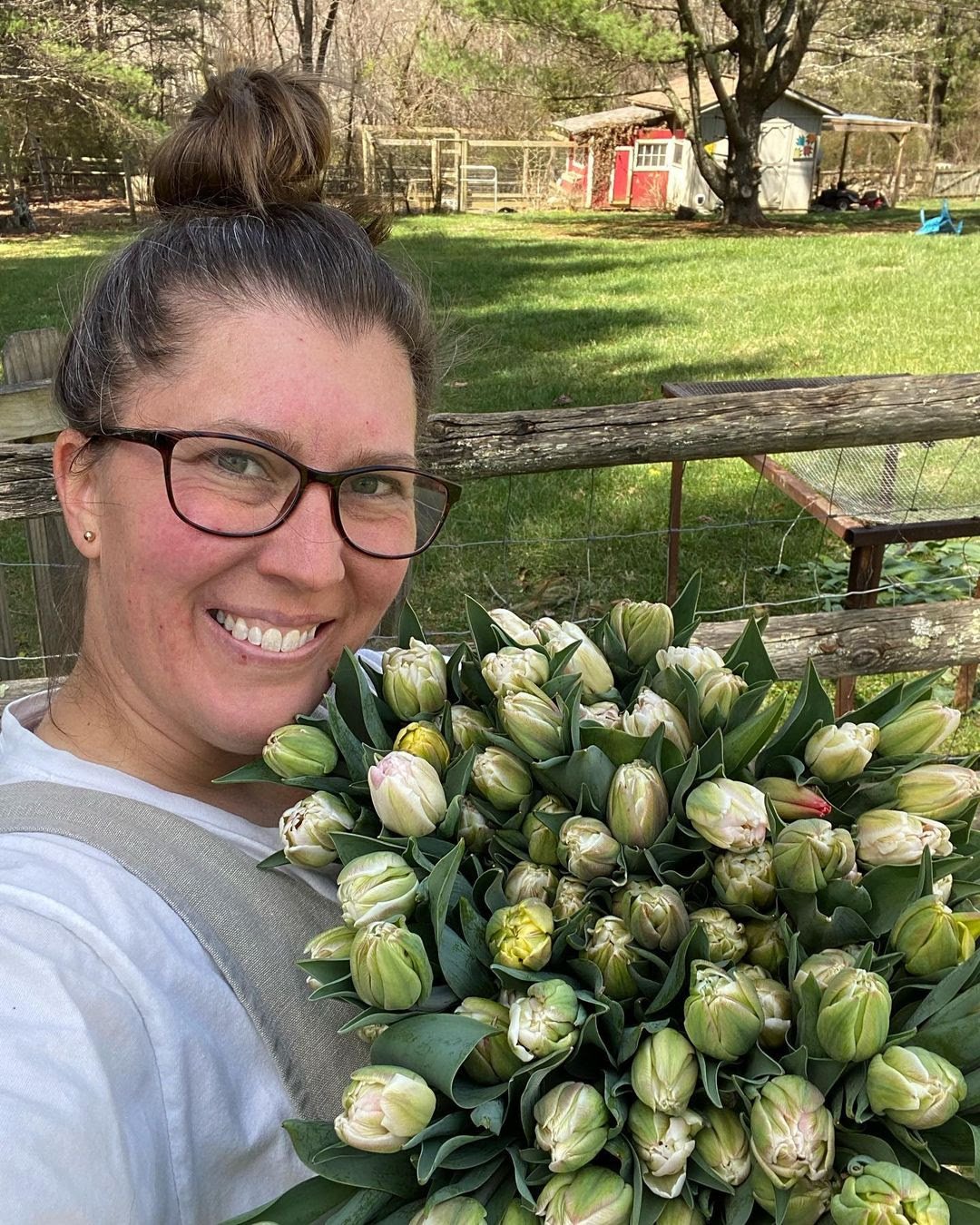Gardening Start-up Advice from Walker Town Farm
After a rocky start with some wintery weather last month, spring has finally arrived here in the valley. And we are all itching to get into the garden!
As you dream about all the seeds and plants you plan on buying (or before you make spontaneous purchases), consider some adivce from my wife and the owner of Walker Town Farm, Jenny Hite. Jenny has turned her gardening obsession into a career, launching a cut flower farm business based in our backyard. She's learned a lot over the years, and below she gives a few tips about how to start your garden well.
“Hello Wellspring members! I am delighted to share a bit of insight as you start digging into your garden this spring.”
Choosing Your Plants
First off, know the right time to plant based on the particular vegetables or herbs you have in mind. Now is the time to focus on summer vegetables: tomatoes, squash, zucchini, eggplant, green beans, okra – it’s a long list of options! There are also many herbs, like basil and thyme, and flowers, like zinnias. If you are interested in broccoli or asparagus, you’ll need to wait until fall to plant those for next spring’s harvest.
Note: Just because a store has the plant in stock doesn’t mean it’s the best time to plant it! Tempting, I know. Wait until after the frost date (Mother’s Day is a good marker) to plant. If you are starting seeds, now is the time. You can start inside your garage.
Preparing Your Soil
If you are bursting with energy to plant, refocus that energy on preparing your soil for planting after that May 8 frost date.
Do you already have a dedicated garden space? Are you breaking new ground? Or are you planting in a container? Each has a different preparation.
Wherever you choose for your vegetable garden, make sure it has full sun. This is a must if you want a productive, healthy garden.
Existing Garden Spot
If you already have a garden spot, now is a good time to solarize to kill the weeds. You can use a large piece of black plastic to block all light to choke out weeds in four weeks. Till if you have stubborn clay soil and amend with compost and general-purpose fertilizer. I suggest buying compost and working it into your soil. Mellie Mac’s or Professional Landscape Solutions are two great local businesses where you can find organic compost and fertilizers. Do not use a chemical Miracle Grow product – it is horrible for the soil, and will only hurt your garden in the long run.
New Ground
First, kill off all weeds in the new spot. I suggest using a silage tarp. You can also use Ingles brown paper bags, broken-down boxes, or newspapers. You can spread those out and put compost on top – worms love it and will break it down. This will provide a great weed barrier, and enrich your soil. Then till and add compost to prepare it for planting.
Containers
Don’t have room for an in-ground garden? Or you don’t want the maintenance involved? Try using “grow bags” that hang instead! There are many patio varieties at Painters Greenhouse, Mellie Mac’s, Appalachian Creek Nursery, and even ACE Hardware in Swannanoa, which partners with local farms. Just remember to wait until after the frost date before purchasing, or keep them protected until then.
Pest Control Recommendations
I recommend the organic approach to pest control, though it does require more patience and may result in some lost plants in the near-term: Create a haven and habitat for natural predators of the pest. This is not a quick fix and takes commitment.
Hang up bird houses. Plant native borders of shrubbery where birds and critters can live (and eat the bugs on your veggies). Don’t kill black snakes, as they help control rodents like voles and moles. Don’t pick up your leaves on the lawn. This creates a place for beneficial insects to live in the winter time. Plant flowers among the vegetables to bring in native bees and wasps who eat some of the bad bugs. Rather than rushing to a pesticide, create balance and give nature a chance to take care of it.
Local Resources
We have an incredible local resource in the Buncombe County Extension, which is staffed by volunteer Master Gardeners who help home gardeners. There is no place better for a rich resource of gardeners who know our WNC soils and plants best. I highly recommend signing up for their monthly Mountain Gardener Newsletter. I have years of newsletters filed away for reference.
Closing Tip: Just do it!
Getting started in the garden can feel like a daunting task with many unknowns. But what do you have to lose? A few bucks on some plants? I have learned so much through trial and error, and each season there is more to learn. COVID has taught us that it doesn’t hurt to be a little self-sustainable and know how to grow our own food. Give gardening a try. Making mistakes is the best teacher. It’s worth it.




